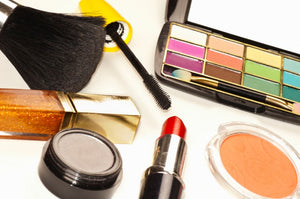Parabens and Endocrine Disruption – What You Need to Know
March 28, 2016

Our endocrine system comprises of a set of glands, and the hormones they produce that regulate many aspects of our existence, from sleep and sex to mood and metabolism. Probably, when you think about hormones, estrogen or testosterone are the first ones that come to mind.
In fact, our body produces dozens of hormones that travel via our bloodstream and act as powerful chemical messengers telling our body what to do, and when to do it so that it can run smoothly and efficiently. Aside from our reproductive system, hormones play a role in our urinary, respiratory, cardiovascular, nervous, muscular, skeletal, immune, and digestive system and any disruption of our body’s natural rhythm can affect our body’s ability to keep our hormones in check whether it’s age, genetic disorder, disease, even exposure to toxins.
Certain toxins can mimic our hormones and interfere with our endocrine system. These are known as hormone or endocrine disrupters, and believe it or not, they’re found in the cosmetics we use. They’re called parabens. And, they’re in a lot more than our lipstick, ladies.
What is a Cosmetic?
Anything that’s rubbed, poured, sprinkled, sprayed on, applied to our body says the Federal Food, Drug, and Cosmetic Act, is a cosmetic that’s intended for “cleansing, beautifying, promoting attractiveness, or altering the appearance” (FD&C Act, sec. 201(i)). Parabens certainly aren’t new; they’ve been in our cosmetics for decades, but it’s only lately that they’ve come under fire because they act like a very weak estrogen in the body and exposure to external estrogens has been linked with certain forms of breast cancer.
Why is that in my Cosmetic?
So what are parabens and what are they doing in our cosmetics? The simplest definition is they are very effective preservatives, and are used in combination with other preservatives to extend the shelf-life of our toiletries and keep them free of harmful bacteria, mold, fungus and many other types of growths that may be harmful to our skin, eyes, and mucous membranes.
The most common parabens used are methylparaben, propylparaben and butylparaben. Try pronouncing those before you hit the shower. Chances are you’re already applying these to the largest organ in your body…your skin, and you’re now wondering if they’re safe.
According to cosmetic regulatory organizations, including the FDA and the Cosmetic Ingredient Review (CIR) panel, parabens have less estrogenic activity than the body’s naturally occurring estrogen. Even when used in much higher quantities on a daily basis, it was found that parabens do not increase the risk of breast cancer. They’re safe, says the government. So what’s the issue, you’re asking?
Are they Safe?
Over the last few years, particularly with rising breast cancer rates, researchers began to question their safety. One particular study, published in Journal of Applied Toxicology, found parabens in human malignant breast tissue. Unfortunately, the study raised more questions than answers because it did not prove parabens cause cancer, only that parabens were found among the cancerous cells. They couldn’t explain how the parabens got there. The study also came under criticism for not comparing paraben levels in normal breast tissue.
Even though the study was flawed, the jury is still out. Health advocates are pressuring the FDA to ban parabens in cosmetics sold in the U.S. as they have in Thailand, the Philippines, and the European Union where a total ban on parabens has been in effect since 2012. You’re probably wondering if they’ve been banned in other countries, why we are using them. The FDA believes there’s no reason for consumers to be concerned, but the bottom line is if you’re concerned, you should take matters into your own hands, and always read the label.
Cosmetic manufacturers are required by law to list the ingredients on the label so it’s up to you to avoid cosmetics with parabens should you wish to avoid them. Additionally, there are several private companies now offering paraben-free alternatives. Just keep in mind these products generally have a much shorter shelf life and will need to be replaced more often so they don’t become a breeding ground for bad bacteria.
The post Parabens and Endocrine Disruption – What You Need to Know appeared first on Natren Probiotics Blog.





Leave a comment